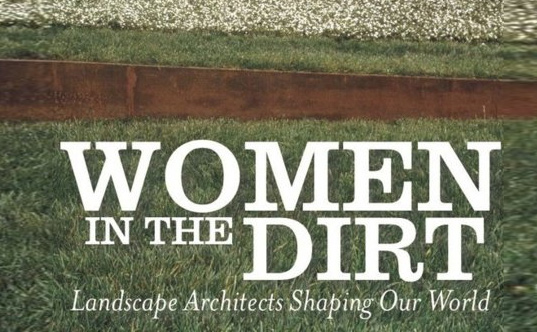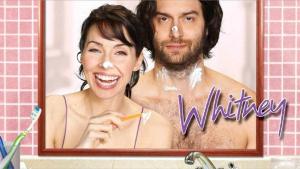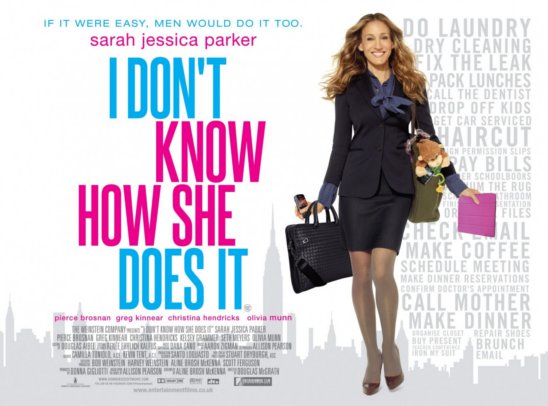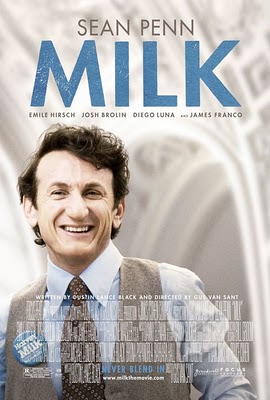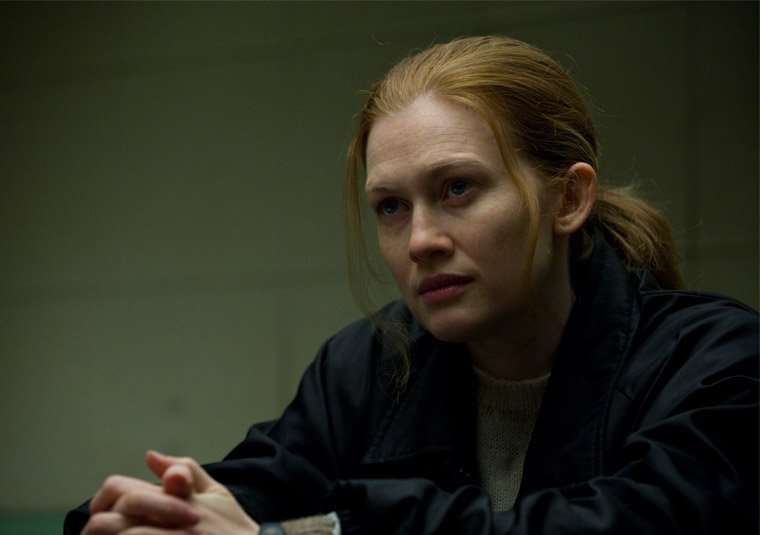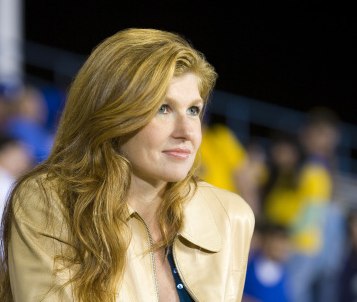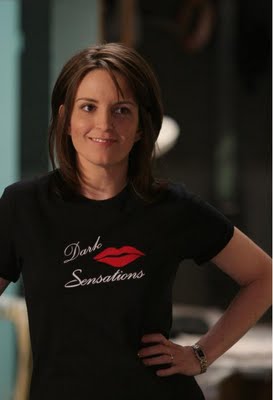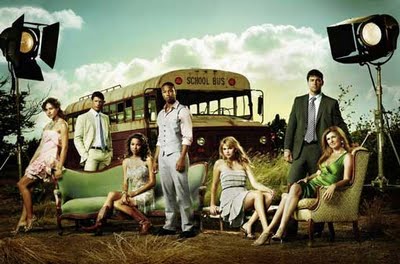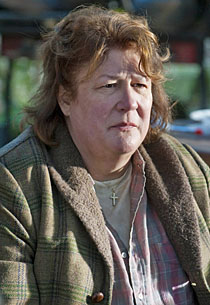Each woman in
Friday Night Lights, like each man in the show, is defined by their relationship to football. Or rather, the town tries to define them by their relationship to the featured football team (either the Dillon Panthers during the first seasons or the East Dillon Lions during the last two). What is and remains fascinating to me is how in the face of this identity pressure, the women are often more successful in redefining themselves than the men.
(I’d have included pictures, but I defy you to find a picture of any of these women on the Internet that doesn’t put them in some sort of come-hither pose that exposes a whole lot of skin. Sigh. These ladies deserve better.)
One of my favorite characters over the final two seasons of Friday Night Lights is Jess Merriweather. She is the eldest daughter of a former football player-turned-restaurant owner, older sister and surrogate mother to two younger brothers, and football lover. When we first meet her, she is a cheerleader for the new East Dillon Lions (and that image of her remains during the final season’s opening credits); one could wonder why we never saw her as a Dillon Panther cheerleader, but it becomes clear that she probably would never have fit in with the Lyla Garrity-types at the old high school.
No, it becomes clear that Jess is only a cheerleader because it is the only legitimate way for her, a girl, to be close to the game she adores. We see her coaching her younger brother, watching the games not in order to find a potential mate but to dissect plays and increase her football IQ. She is a smart, driven young Black woman, trapped between her love of football and the very gendered expectations of the town. When she is given the opportunity to “coach” star quarterback/boyfriend Vince over the summer, she finds her outlet. Unfortunately, once school and the season start up again, she is relegated to the demeaning role of “rally girl.”
The rally girl is a problematic, but all too realistic, role for Jess. She views herself as Vince’s equal, not his servant. The typical role of the rally girl is to do whatever she can to “motivate” the football players to play at their best on Fridays. In fact, the rally girls wear their respective player’s jersey, essentially owned by the player. It also should be noted that the girls get no say in who their player is; the girls randomly pull jerseys out of a box, and the player can barter and trade girls if the price is right (in one case, it’s a prized pig – do with that what you will). For most of the girls, it is an honor to be a rally girl, to be associated with the “star” football players. But that is not what Jess wants anymore from football; residual fame and greatness is no longer enough.
Jess, instead, becomes the equipment manager for the team. She gets a respectable uniform (versus the scantily-clad cheerleaders), access to the locker room, the coach, the sidelines, and the game. Her job is far from glamorous; she cleans jock straps, washes towels, works to prevent staph infections. Of course, this role strains her relationship with Vince; Vince tries to protect her from the ribbing the team subjects her to, while Jess wants to prove she can hold her own, on her own. In fact, it is Coach Taylor, and not the players, who has the most difficulty accepting Jess in her new role.
Jess fights for the respect of the players and Coach Taylor, working hard to be the best equipment manager/future coach she can be. She presents Coach Taylor with a profile of a female high school football coach to prove to him that it can be done. He tries to scare her by laying out her odds for success. Jess’ confidence never wavers, and Coach Taylor, champion of lost causes (see Vince, as well as Tim Riggins and Matt Saracen), is won over. We last see Jess as an equipment manager at her new school in Dallas.
Jess is just one example of the type of strong, well-developed female characters Friday Night Lights has created. The final two seasons also allowed us to get to know Mindy Riggins: older sister to former cast member Tyra Collette, stripper, mother, and wife to Billy Riggins (who was a former Panther star). In the early seasons, Mindy was simply an excuse for Tyra (and the rest of the cast) to visit The Landing Strip, Dillon’s local strip club. Mindy and their pill-popping, boozy mother Angela, were representative of everything Tyra wished to escape. Tyra did, in fact, successfully make it out, attending UT Austin. But what about those who are left behind in the small town of limited possibilities?
Mindy follows what might be seen as a stereotypical small-town girl path: she gets pregnant and gets married. Both she and Billy struggle with paying their bills and finding meaningful employment. But in what could easily have become a caricature of “white trash” existence (drinking, fighting, divorce, abuse) becomes a very real picture of two people trying to make it work in tough economic times. Mindy also steps up and takes Becky under her wing, a girl in whom she sees much of herself. Mindy also has a boozy mother, an absent father, and is left on her own to navigate through life (but more on her in a moment). When Mindy witnesses Becky being abused by her father and step-mother, she steps in (forcing Billy to do the same) and defends Becky. This is an incredible act from someone who, up until this point, saw Becky as competition rather than a sister. Mindy was perhaps the first person who ever stood up for Becky, acting as the advocate she herself probably never had.
This relationship, of course, is not without its problems; Mindy takes Becky and her son to The Landing Strip and even allows Becky to waitress at the club. Stripping (and as an extension, the strippers themselves) are neither glorified nor vilified by the show. In a town where economic opportunities are limited regardless of gender, these women make money the best way they can, using their bodies to pay the rent. There is nothing glamorous or liberating about their jobs, besides the “easy money” that can be made. But that money isn’t as easy as Becky thinks it is. We see Mindy furiously working out in order to get her body back into shape for the job, and even then, she is relegated to the humiliating “lunch shift.” But the women are also treated with dignity, at least within their group. They are far from being victims or victimized; initially, the show seemed to be saying that Mindy was a stripper because she didn’t have a father and her mother was lacking. But during the last two seasons, the strippers move from being symbols of failure to symbols of survival.
Mindy finds a community with the women of The Landing Strip, and a support system that she never had before, finding a place where she can be honest about her past abortion and how it is still impacting her relationships. The ladies from the strip club also take Becky to participate in one of her pageants; when one of the judges criticizes Becky’s choice of “supporters,” Becky clearly chooses her new family over her dreams of winning pageants. I’ll admit that I bawled like a baby during the final episode when Mindy and Becky say goodbye to each other when Becky moves out to live with her mom again. Family, in this show, is who sticks with us through the hard times.
Which brings us to the issue of the abortion. Becky gets pregnant during the fourth season (by a football player, no less), and she does, indeed, go through with having an abortion (some would argue at her mother’s insistence). Initially, the abortion more immediately impacts another character, Tami Taylor, who was at that time vice-principal at Dillon High School (Becky goes to East Dillon). Tami was brought in to counsel Becky when she had no one else to turn to. But while Becky seems to have come through the abortion okay, we learn in the fifth season that she still carries some unresolved feelings about the boy who got her pregnant.
This portrayal of a young girl feeling trapped by a bad situation is handled, to my mind, sensitively and realistically. Becky is not left unaffected by the procedure, nor does she seem permanently and disastrously scarred. Those around her (her mother, the mother of the baby’s father, the community) seem more upset and emotionally reactionary than Becky herself. It also seems that the extreme reactions of those around her affect her more than the abortion itself; it is again only when she confides in the strippers that she gets the level-headed and unconditional support she needs to move past the event. Abortion, it would seem, is not the issue; the hysteria surrounding it is.
These are just three of the complex women of Friday Night Lights. I’ve focused on the final two seasons, as this is the season that is up for an Emmy. One could look at the evolution of Lyla, Julie, Tyra, and other early-season characters, as well as the myriad of “minor” characters who have populated the edges of the show (Maura the rally girl, Epyk the problem child, Vince’s mother, and Devin the lesbian spring to mind). Each one deserves her own essay, devoted to all the ways the show did (and didn’t) do the characters justice.

